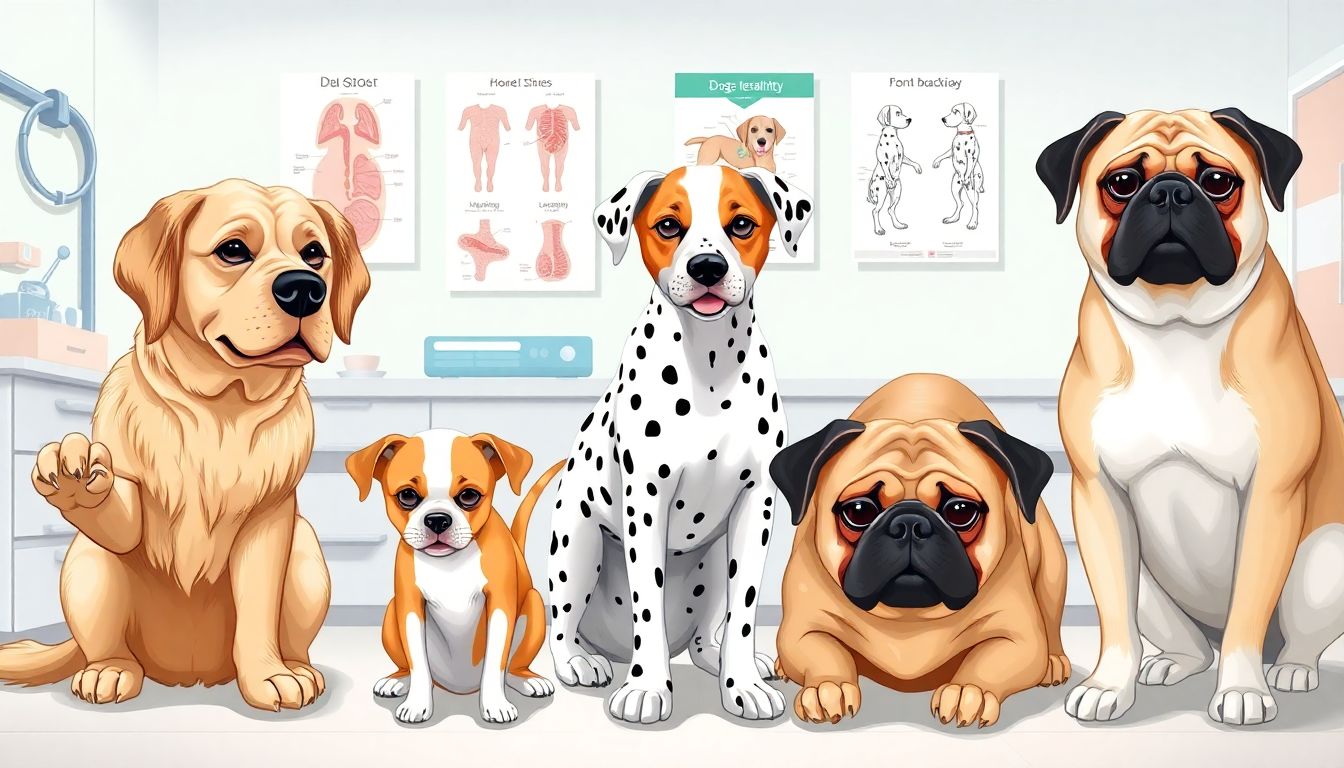Introduction
Taking care of a dog means looking for health problems. With early detection, you can save your pet from pain and serious illness. Dog diseases become severe if not addressed at the right time. Ignoring symptoms can rob your dog of its life and shorten happiness. An understanding of common diseases and symptoms enables one to act fast and keep the dog safe. This guide gives you a well-outlined list of diseases and their symptoms for the protection of your dog.
Major Categories of Dog Diseases and Their Common Symptoms
Infectious Dog Diseases
Canine Parvovirus
Symptom: Vomiting, bloody diarrhea, extreme fatigue, loss of appetite
How it spreads: Contact with infected feces or contaminated objects/surfaces
Prevention: Vaccination of your dog and cleanliness of the premises
Kennel Cough (Canine Infectious Tracheobronchitis)
Symptoms: Persistent dry cough, gagging, runny nose, sneezing
When to seek help: If cough lasts more than a few days or gets worse
How to prevent: Vaccinations, avoiding busy places during outbreaks
Rabies
Symptom: Strange behavior, paralysis, excess salivation, timidity
Important: Rabies vaccination is a requirement in most areas
Note: It is fatal after symptoms develop
Recognizing Skin and Coat Diseases
Allergies and Dermatitis
Symptoms: Itching, redness, hair loss, skin infection, crusty patches
What to do: Identify allergens with the help of a vet and eliminate the diet or environment if necessary
Parasites (Fleas, Ticks, Mange Mites)
Symptoms: Scratching, hair loss, irritated skin, redness
Prevention: Regular use of flea and tick preventatives, weekly checks on your dog
Yeast and Bacterial Infections
Symptoms: Bad smell, crusty patches, itching all the time, redness
Treatment: Medicated shampoo and antibiotics prescribed by a vet
Identifying Digestive and Gastrointestinal Disorders
Gastroenteritis
Symptoms: Vomiting, diarrhea, stomach pain, loss of appetite
Causes: Sudden diet change, spoiled food, infections, toxin ingestion
Foreign Body Obstruction
Signs: Sudden vomiting, lethargy, bloated belly, inability to go potty
Urgent: Seek vet care immediately when noticing these signs
Inflammatory Bowel Disease
Symptoms: Prolonged diarrhea, weight loss, and vomiting
Control method: Special diets, medications, and regular vet visits
Common Musculoskeletal and Mobility Problems
Symptoms: Stiffness, limping, not being able to jump or go up and down stairs
Help: Control their weight, physiotherapy, and comfortable beds
Hip Dysplasia and Bone Fractures
Symptoms: Trouble standing or walking, reluctant to jump or run
Treatment: Operation, pain relief, and rest
Ligament and Tendon Injuries
Symptoms: Sudden limping, swelling around the joint, pain present
Care: Rest the dog. See a vet. Surgery may be needed.
Recognition of Signs of Internal and Organ Diseases
Heart Disease
Symptoms: Coughing, tiring easily, breathing problems, fainting
Prevention: Regular check-ups and activity monitoring
Kidney and Liver Diseases
Symptoms: Increased thirst, vomiting, jaundice (yellow gums and skin)
Action: Diet change, medications, and frequent vet visits
Diabetes Mellitus
Symptoms: Increased urination, weight loss, excessive appetite
How to help: Insulin injections, special diet, and vet supervision
Actionable Tips for Pet Owners
- Ensure yearly examinations by the vet and stay updated on vaccinations
- Watch your dog daily for changes in energy, appetite, or behavior
- Keep a symptom diary to notice patterns or worsening signs
- Know the common health issues related to your dog’s breed
- If symptoms appear unusual or severe, don’t delay seeking professional help
Conclusion
Detecting health problems sooner saves lives for many dogs. Knowing something about symptoms helps one to act fast before something becomes worse. Regular vet visits, proper vaccinations, and observation will come up as the best measure for good health in a dog. Remember, a well-informed owner is the best protector against dog diseases.









